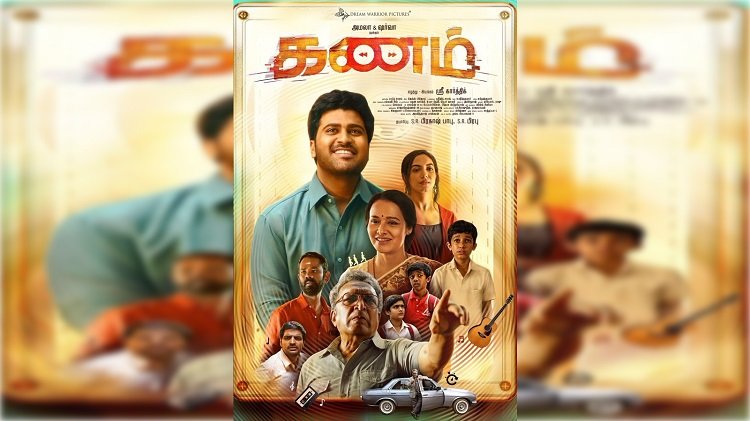Read in : தமிழ்
Kanam should count as among the few of a genre widely popular in Hollywood and elsewhere, not in India. India should be the natural home of the spiritual film but is not.
A spiritual film has no religious content. Nor is it to do with myths, religious epics and stories. The spiritual film is about redemption and self awareness. It is about acceptance of all of life’s ups and down and people and the blossoming of love from within. Transformation is the hallmark of a spiritual film.
A key problem that spiritual films deal with is coming to terms with one’s past since we are all given to regretting the past. We wish that we could go back in time, press the rewind button and change our present.
In Mudhalvan, writer Sujatha’s words yearn for the rewind button like in a tape recorder. Those words of wisdom were greeted with much applause! In Kanam (Moment), the rewind button is available through a time machine.
Also Read: Maamanithan: Thumbs up to a simple film upholding simple life
Regretting the past is the underlying emotion of Kanam. Aadhi (Sarvanand) pines for his mother who died when he was young in an accident. This makes him spurn his father’s affections. A talented musician, his grief prevents him from becoming a performer.
His friends Kadhir and Pandi have their own peeves in life. Kadhir (Satish) is sad he is unable to find a life partner. His friend at school who was affectionate to him marries another man. Pandi, who hasn’t passed Class 10, regrets not being in good in studies. He feels if he had studied well he wouldn’t be a real estate broker.
The three meet scientist Rangi Kuttapaal (Nasser) who has built a time machine. They travel using it from 2019 to 1998 so they can undo their past. But another problem crops up there and they hasten back to 2019. What does this journey teach them? Kanam explains this.
Kanam doesn’t have too many twists. The story is rather straightforward and therefore doesn’t bring us to the edge of the seat nor does it surprise us too much. But the movie does remind us that the bigger purpose is to have the characters becoming aware of their own selves. Director Sri Karthik shines in that respect.
The past is recreated through radio, bicycle and pager. The rest didn’t look late 90s.

The Kanam Team ( Photo credit: Actor Sharwanand Twitter page)
Amala has made a reappearance, this time through a bilingual. Time has taken a toll on her face, true. But accepting time’s doings is part of Kanam’s message.
Self knowledge and self discovery is a common theme in Hollywood. Tom Hanks’s Castaway, Will Smith’s Pursuit of Happyness and Paul Giamatty’s Sideways are some recent examples.
In films such as Sridhar’s Sumaithangi, K Balachander’s Ethirneechal or even Kamal starrer Uyarntha Ullam in which he accepts relative poverty, the characters come to a balance after going through dramatic ups and downs. In Kanam, the characters’ lives are somewhat steady. But their own expectations lead to their misery. Their acceptance of reality is therefore more authentic and realistic.
Also Read: ‘Nna Thaan Case Kodu’ a whiff of fresh air
Prabhu Solomon’s Kayal talks about two youth embarking on a journey without a great intent. They learn life lessons on their way.
Vijay Sethupathi’s Mamanithan and Dhanush’s Thiruchitrambalam can also be said to be spiritual films although there are many other themes in those films. Kanam’s focus is self awareness. Just as in life problems don’t end nor achieve a grand resolution, in Kanam too there’s no traditional climax.
Kanam’s take is therefore highly realistic. It doesn’t say that life is about solving big problems. And those who don’t embark on such projects haven’t lived unworthy lives either. Kanam shines a light on the path to true happiness – accepting reality and appreciating what we have.
Having one leg in the past and another in the future will leave with us no standing in the present. Kanam tells us to stay rooted in the present and move ahead in life with joy.
Read in : தமிழ்











